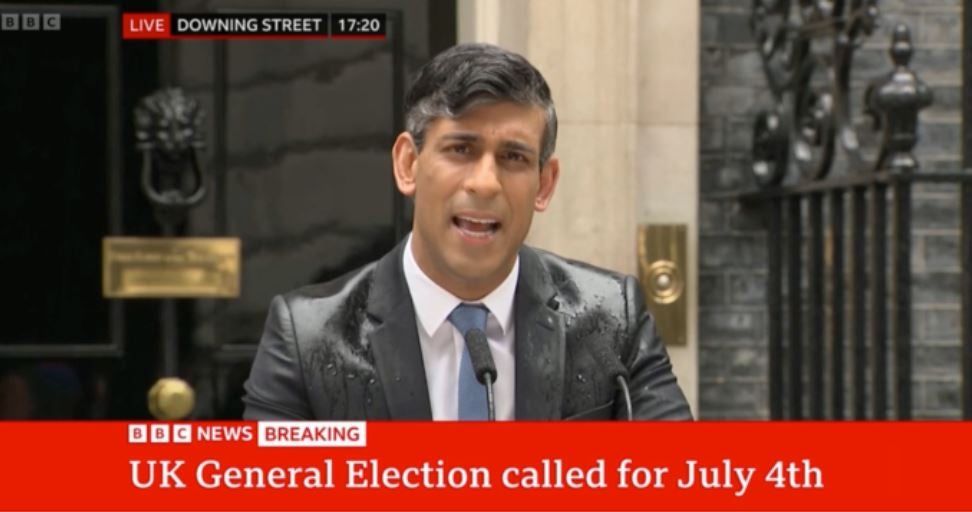Standing outside 10 Downing Street in the pouring rain yesterday afternoon, Prime Minister Rishi Sunak announced that the UK General Election will be held on July 4th. This news coincided with a significant economic development: inflation tumbled to its lowest level in nearly three years.
According to the Office for National Statistics (ONS), the consumer prices index dropped sharply in April from 3.2% to 2.3%, driven by a record decline in typical energy bills. This drop takes the pace of price growth to its lowest level since July 2021, although it was slightly higher than analyst forecasts of a fall to 2.1%. Services inflation increased by 6%, also more than predicted, according to Reuters.
Sunak remarked that inflation is “back to normal” and assured the public that “brighter days are ahead.” However, City traders are now not pricing in a first interest rate cut until November, with it previously expected by August. With the economy stabilised, Sunak has decided this is the best time to ask people to decide what government they want next.
For UK small and medium-sized enterprises (SMEs) — numbering 5.6 million at the start of 2023, according to the FSB — the election announcement and the drop in inflation present a mixed outlook but potentially hopeful opportunity.
Michael McGowan, Managing Director of Foreign Exchange at Bibby Financial Services, described the inflation announcement as “welcome news for UK businesses.” He noted that SMEs have struggled with high business costs over the past two years, with inflation being their top challenge.
McGowan highlighted that the Bank of England’s 2% inflation target is now within reach, potentially leading to interest rate cuts. The IMF suggests up to three cuts this year, improving conditions for SMEs to borrow, invest, and grow. However, he warned that changing domestic economic circumstances could mean uncertainty for those trading abroad.
“SMEs should feel buoyed by the UK’s improving economic outlook,” McGowan said, “but those with international interests should also shore up their FX strategies to capitalise on upcoming opportunities.”
As the election approaches, the economic landscape is set to be a crucial factor for voters, particularly the business community. SMEs will be watching closely to see how policy proposals from various parties – especially the Labour Party, which on current polling is on course to beat the Tories – might support or hinder their recovery and growth.
Labour gains ground among UK SMEs ahead of Spring Budget: poll









